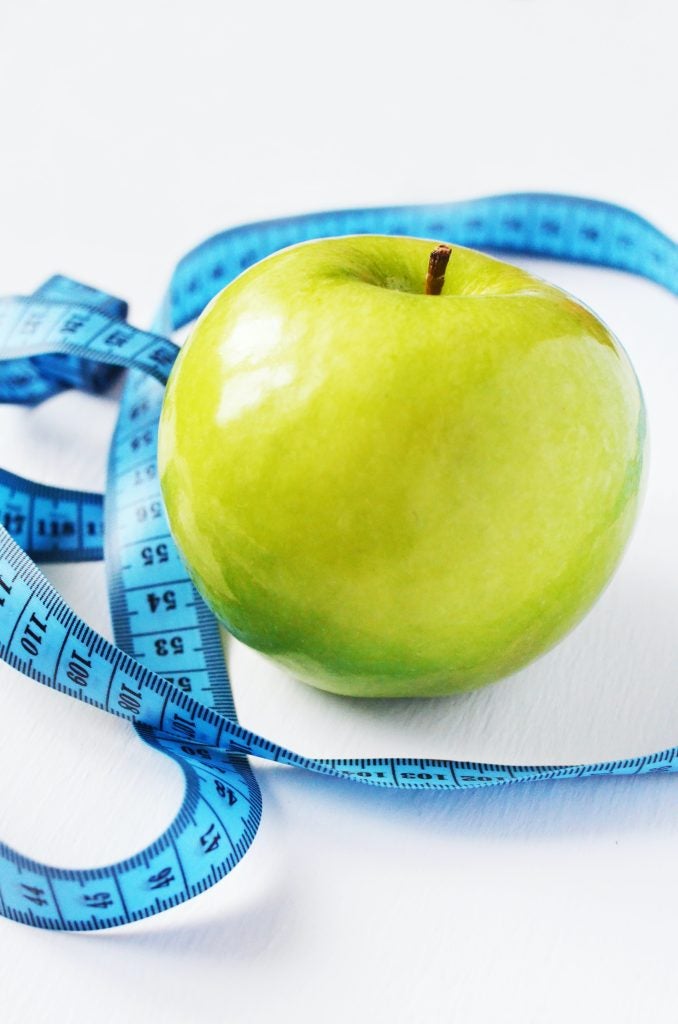
Table of Contents
What Is a Fad Diet?
Due to an increased exposure to “ideal body types” in society, weight loss has become the focus of advertisements, social media accounts, health programs, and even social groups. Nowadays, it is difficult to engage with pop culture and the news without hearing about some type of new diet or weight loss program. Weight loss can be beneficial to one’s health in many cases, however, the introduction of Fad Diets has proven to increase risks associated with the desire to live a “more fit” lifestyle.1
Fad Diet vs. A Diet
A fad diet is a restricted course of food that allows individuals to attain quick and easy weight loss. The fad diet may come in the form of a cleanse, a collection of pills, a diet plan, or even a non-invasive instrument, like the waist trainer. Fad diets promise an efficient and easy way to lose weight with minimal effort or exercise involved.1
Some popular fad diets include, but are not limited to, the following sources: the South BeachDiet, the Zone Diet, the Paleo Diet, Juice Cleanses, Atkins, Cabbage Soup Diet, Nutrisystem, Weight Watchers, and Raw Food Diet.2
More often than not, these fad diets do not produce reliable changes. Because fad diets require individuals to either cut out certain food groups entirely or encourage individuals to take pills for weight loss, they often become unsustainable and people may end up gaining even more weight than they had to begin with. When fad diets do yield rapid weight loss, it often comes at the expense of one’s physical and mental health.
In short, fad diets are appealing because they offer simple alternatives to healthy eating and exercise; however, these diets are often dangerous, ineffective, and expensive.
Fad Diet vs. A Diet
A “fad diet” is different than a “diet.” A diet is a way of constricting one’s food intake so as to ensure a healthier and more positive lifestyle, while a fad diet constricts food intake in unnatural ways for the sake of rapid weight loss. A diet takes into account the different lifestyle choices and activities that a person makes in order to individualize their body and to formulate a healthy eating plan. A fad diet is “mass produced,” in the sense that the diet is not fit for different individual lifestyles.3 A balanced diet will be different for each and every person. For instance, a 6-foot-tall model would most likely not have the same health needs as a 5-foot tall gymnast.
In addition to the focus on individual needs, healthy dieting focuses on long-term results as opposed to quick and easy fixes.3 By focusing on the long term, a person who chooses a healthy diet will benefit their health in the long-run. Changing one’s diet can help reduce many health issues that arise from long-term unhealthy eating habits.
Healthy dieting, unlike fad dieting, stresses the importance of ideal health over ideal weight.3 This means that instead of focusing on fitting into a smaller size overnight, healthy dieting focuses on how to feel better about one’s lifestyle choices as fast as possible. It is important to distinguish the two in order to maintain a healthy body and mind.
How Did Fad Diets Come About?

It is no secret that Western society has become engrossed with attaining highly unrealistic standards of beauty. Fad diets grew in popularity as a direct response to the demand for incredibly thin and fit physiques. There are many avenues of outward influence that can pressure an individual to feel the need to join this fad.
- Social Media. Social media plays a huge role in shaping the ideal body images of individuals, more specifically young adults. Social media users are positively reinforced to maintain this unrealistic standard when they receive likes and comments on the photos they post. When they do not reach a quota, they often feel negatively about their body image and focus on what they can and can’t change about their bodies. Capitalizing on the power that social media plays on the body images of young social media users, corporations now pay and encourage models and individuals with incredibly fit bodies to promote fad diets on their accounts. Through the use of social media, users are both consciously and subconsciously reinforced to try to attain these socially accepted body types. Every day, social media users are pressured into losing weight quickly, and often turn to popular fad diets in order to achieve their goals.4
- Television. Certain Western television shows, like The Biggest Loser and Khloe Kardashian’s Revenge Body, pressure individuals to focus on their bodies. The shows center on how individuals can transform their bodies as fast as possible. On these shows, people who go through the programs are forced to adhere to strict food diets and incredibly rigorous workout programs. Because this lifestyle is not feasible for the average person, and it is not maintainable or healthy over long periods of time, individuals turn to fast fixes like fad diets.1 Infomercials about exercise programs and dietary supplements that promise rapid weight loss and transformation also saturate television programs.
- Societal pressure. The societal ideal of the thin woman began in the early 1800s when women were depicted as fragile and skinny in famous paintings, while men were depicted as chiseled and lean.4 As time went on, nearly all women and men in movies were thin, and women in theatre productions often wore waist-trimming corsets.4 Both women and men have become the target of books and manuals about dieting and the trend has maintained its prevalence in media today. Furthermore, the production of more male-focused magazines place pressure on men to have muscular or thin physiques that are often unattainable.
- Magazines and the Fashion Industry. The fashion industry promotes unrealistic body types by exclusively hiring models who are thin and lanky. Photoshopped images of these models are plastered in these magazines just pages away from advertisements that describe how to attain these unrealistic ideals of beauty. Readers are pressured into following fad diets when they view images of individuals who have ideal body types and then read about fad diets in advertisements just pages away. In men’s magazines, images of male models with strong builds are plastered on the pages. Advertisements for fast ways to get those big bulky muscles are thrown into the magazines and men are pressured into purchasing costly powders, pills, and diet plans.
Examples of Fad Diets & Weight Loss Supplements
There are many different fad diets that require people to follow various diet plans and restrictions. Among the many fad diets are: The Cabbage Soup Diet, Juice Detoxes and Cleanses, Fat Burners and Weight Loss Pills, South Beach Diet, and Atkins Diet.

- The Cabbage Soup Diet. This fad diet is a seven-day meal plan that advises a person to eat soup made out of cabbage, celery, onions, tomato juice, and spices. It prohibits bread, carbonated beverages, carbohydrates (aside from the vegetables in the soup), and alcohol throughout the entire seven days. The diet is low in protein, low in calcium, high in sodium, and lacks essential fats and micronutrients. A low protein diet harms muscle growth, a low calcium diet weakens bones, and a high sodium diet leads to bloating. Weight loss may occur from the extreme restriction of calories, but it will not be sustainable.
- Juice Detoxes/Cleanses. Juice cleanses usually last anywhere from two to five days and promise weight loss up to ten pounds in this short period of time. A juice cleanse means that an individual can only ingest juice as a form of sustenance for the duration of the cleanse. Solid food is strictly prohibited. Proponents of the juice cleanse claim that the nutrients in each designated juice sufficiently replace those of solid foods. The diet is supposed to detoxify the body naturally because of the lack of solid food. In reality, this detoxification process actually occurs every day in the liver.5 Because these diets are low in protein, low in carbohydrates, low in fats, and very high in sugar, they are very unhealthy for a person’s natural metabolic processes. In addition, these juices lack the sufficient vitamins and minerals to sustain an individual’s body. Not only are juice cleanses very costly, they are also not very effective. Although one will probably lose a great deal of water weight, this weight returns very quickly. Drinking juice is not a bad thing; juice can contain multiple servings of vegetables and fruit and is a great way to reach your micronutrient needs. However, when a person relies on juices as their main form of sustenance, their health may be compromised.5
- Fat Burners and Weight Loss Pills. Many fad diets encourage various fat loss or fat burning pills that promise to aid in weight loss. For the most part, these products are expensive and have not proven to be effective. Some of these pills include CLA, Garcinia Cambogia or Green Coffee Bean, and caffeine pills. Health specialists note that pills and burners alone will not do much for the body unless they are accompanied with a healthy diet and adequate exercise.6
- South Beach Diet and Atkins Diet. These diets are some of the most popular commercial low-carb diet plans. They cut out most carbs, aside from some fruits and vegetables. Like other fad diets, they promise results that are not backed up by science and research. In fact, research shows that low carb diets can cause many psychological and physical complications (more information below).6
Why Fad Diets Fail
The common denominator in all fad diets is that they are incredibly restrictive to an individual’s food intake and they promise fast and easy results. The reason why fad dieting often fails is very simple: Temporary fixes, like fad dieting, pressure the body to burn off the energy from food before the body burns any actual body fat. This means that, the body burns glycogen from carbohydrates long before it burns stored body fat.1 The fast results that individuals often see from fad dieting is, for the most part, the loss of water weight. As soon as the individual goes back to their regular diet, the weight is rapidly regained.
Furthermore, because fad dieting is so restrictive in terms of the food that individuals are allowed to consume, these unhealthy habits of restrictive food consumption can often lead to eating disorders that cause people to monitor their food intake at all times. Bulimia and binge eating are more severe consequences of restrictive eating plans.1
The negative consequences of fad dieting, more often than not, can outweigh the positive outcomes of Fad dieting. These mental and physical consequences should not be taken lightly.
Physical Health Risks
As previously mentioned, fad diets often cut out or restrict entire food groups. Many of the most common fad diets restrict carbohydrates. Carbohydrates are the body’s main source of energy. Carbohydrates are found in fruits, vegetables, grains, and legumes. Restricting carbohydrates causes blood sugar to drop below normal levels, in a condition known as hypoglycemia.7 Low blood sugar can cause impeded brain functioning, loss of coordination, loss of muscle, weakness, fatigue, and excessive sweating. Restricting carbohydrates consequently restricts fiber, which is found in fruits and vegetables. Fiber helps the body digest food, so without it, a person can become constipated and susceptible to infections in the digestive tract.3 An unhealthy, low calorie diet can also cause deficiencies in calcium, which can lead to loss of bone mass and joint problems.1
In addition to decreasing one’s energy, restrictive dieting can also negatively affect hormone levels. Hormones control many of the physiological processes that occur in the body, including your metabolism, immune system, menstruation in females, and reproduction. Insulin, the hormone that carries glucose (sugar that supplies energy to the brain and, therefore, affects brain and physical function) to your cells for energy, declines with carbohydrate restriction, which leads to further muscle loss and fatigue. Similarly, the hormone cortisol, known as the “fight or flight” hormone, stimulates energy production from glucose and fats in preparation to combat internal or external stress. Cortisol is produced when the body undergoes stress (in this case, the stress of an improper diet and excessive exercise). If the body is constantly under stress for a prolonged period of time, it continues to release cortisol, which causes decreased muscle mass and increased body fat. Weight-loss supplements increase cortisol because they deliver excess stimulants to the body. The body perceives the stimulants as stress and in turn produces more cortisol. The body reacts to day-to-day stress the same way. Whether it is stress about a diet, appearance, exercise, school, relationships, or a combination of many factors, cortisol is produced as a way to fight the stress. To summarize, a restrictive diet that also includes weight loss supplements increases cortisol levels because the body views the restriction of calories and increased stimulants as stress, which sets the dieter up for weight gain rather than weight loss. Overall, stress can make you gain weight!4
Restrictive dieting can cause adrenal fatigue. The adrenal glands secrete hormones that respond to a person’s emotional, physical, and psychological environments. With too much stress from these environments, such as prolonged over-exercising or restrictive and extreme dieting, the adrenals can no longer compensate for the stress and become fatigued. The release of adrenal hormones is decreased, which affects energy levels, mood, cardiovascular systems, sex drive, and metabolism. Stressors of any kind add up and take a major toll on the body’s functioning. A poor diet is a stressor because the body cannot get the proper nutrients it needs to flourish.5
Another way that severely restrictive dieting can negatively impact one’s health is that it can also slow down metabolism. Metabolism is the sum of the chemical processes in the body that allow one to burn calories or fat. Metabolism is never destroyed, but a diet will cause one’s metabolism to adapt to a lower level of intake, which sets one up for rapid weight regain once a normal diet returns. Rapid weight regain is due to the shock that the slower metabolism receives from a large, rapid increase in the amount and variety of foods that it had been previously deprived of. In other words, a person’s body goes into starvation mode when he or she deprives it of the proper nutrients it needs. Therefore, when a dieter gives their body more food, whether that be right after a diet or during a binge, their body will store the excess food as fat because it has adapted to a starvation diet and is trying to help them survive by storing the extra calories. The weight gained typically causes the individual to end up weighing more than they did before the diet began. Because of this rapid decline of metabolism and weight rebound, nutritionists recommend making very small decreases in caloric intake to lose weight, but also making small increases in caloric intake following a dieting period.5
Mental Health Risks
When people restrict their diets suddenly, they may develop more intense cravings for food that they used to eat before because they are not used to the sudden elimination of the food. Having intense cravings for food while also restricting oneself from said food may cause a great deal of stress on the brain. This may cause an obsessive attitude toward the food, resulting in difficulty focusing on things other than food.
More seriously, restrictive dieting can also cause a person to associate negative feelings with the consumption of food. These individuals can develop a “diet brain.” The term “diet brain” insinuates that the dieting person will grow an obsession with food and weight, causing extreme psychological stress and, therefore, high cortisol. This causes the dieter to become stressed about what foods they can and cannot eat, which only increases irritability and even hostility toward others. Restricting food and over-exercising may also cause an individual to dread physical activity.7
Because fad dieting requires heavy restrictions on food intake, people may exhibit low blood pressure due to a lack of proper nutrients. Low blood sugar often causes fatigue, which negatively affects physical activity. A lack of physical activity may decrease intrinsic motivation and, therefore, cause nonadherence to a consistent exercise program or future exercise programs.7 In addition, if a fad diet is not giving a person the results they have been promised or are expecting, it can cause the dieter to lose confidence and develop an unhealthy relationship with food. Unhealthy relationships with food and body image can lead to eating disorders.
Dieting and Sexual Relationships

Because fad dieting requires the elimination of foods like carbohydrates that store energy, the body becomes exhausted and cannot function in its natural rhythm. Fatigue, hormonal irregularities, and increased cortisol levels are all consequences of fad dieting that negatively affect an individual’s natural libido. A sudden decrease in libido can put stress on a sexually active couple. This can cause feelings of neglect and even frustration in a relationship.8
Furthermore, hormonal irregularities can also lead to mood changes, which can increase hostility in a relationship. Sudden mood changes can create significant stress in a relationship and can cause damage to a couple.8
Fad Diet Red Flags: How to Tell If a Diet Is Not Healthy
Most people have been exposed to a fad diet advertisement. Fad diet ads pop up everywhere in today’s Western media and can sound very enticing. It is often difficult to discern whether or not the fad diet plan may be beneficial to one’s health. In some cases, diets can be helpful; however, in many cases, fad diets can be dangerous to follow. The following are some warning signs of unhealthy diets:
- The diet requires you to eliminate entire food groups. Most fad diets encourage individuals to cut out entire food groups like carbohydrates. The body needs carbohydrates in order to store energy. While an individual may notice weight loss after a week or two of no carbs, they will also notice that they are severely fatigued. Once that person consumes a carb again, they will once again gain the lost water weight. The human body needs a combination of carbohydrates, fats, and proteins. When people cut out an entire food group from their body, they are depleting it of the proper nutrients and vitamins that it needs in order to function properly.9
- The Diet is drastically different from the way that you usually eat. When a diet is entirely different from the way one is used to eating, it may make it very difficult for that person to maintain that diet. Furthermore, if a diet requires a significant amount of time for meal preparation when one does not have that amount of time, the individual may feel pressured to forego a meal altogether. When a diet is drastically different from one’s natural food intake, this can cause feelings of frustration and one will probably not stick with their dieting plan.9
- The diet promises fast and easy weight loss. If the diet promises a significant amount of weight loss in a short amount of time with minimal exercise, chances are the fad diet is unreliable. There is no easy way to instantly lose weight; eating healthier and exercising consistently are the best weight loss options, and these processes take time to work effectively. Most advertisements ignore the fact that every body is different and, therefore, requires different, individualized care. While losing 20 pounds of fat is a hugely unrealistic and dangerous plan to steer clear of, losing .5% of body fat, which can range from a half pound to two pounds a week, is more realistic and far healthier. Advertisements promise fast and easy weight loss in order to sell their product, so it is important not to not fall for these strategies.9
- The diet requires you to buy special pills or powders. One should only ingest pills prescribed by a medical professional. No pills sold to mass consumers can reliably promise weight loss because they are not tailored to the individual’s physiological needs.9
- The diet comes from a nonscientific source. Advertisements from social media influencers on Facebook, Instagram, YouTube, or Tumblr do not constitute scientific sources. Unless the diet plan has scientific evidence from a reliable source, the diet cannot guarantee weight loss.9 Always remember to check the credibility of the source that promises fat loss.
How to Have a Balanced Diet
Fad diets often overlook what is necessary in a balanced diet. A diet that cuts out carbohydrates, for example, cuts out many crucial foods such as fruits, vegetables, and grains that have fiber, vitamins, and essential minerals found in carbohydrates. A diet that cuts out fats also cuts out necessary omega fatty acids. The concept is simple: think about a diet as a long-term health goal. As long as one is consuming an appropriate amount of each macronutrient (protein, carbohydrates, and fat) and is getting enough micronutrients (vitamins, fiber, and minerals), almost any food can be a part of an overall healthy diet. Labeling foods as “good” or “bad” (which most fad diets do) demonizes a single food or an entire food group and leads to feelings of guilt around food. As mentioned previously, cutting out food groups can cause many hormonal imbalances and physiological stress, so keeping a balanced diet is key to sustainability.3

There is no singular food that will make a person lose weight, because one food will not cover all of the critical nutrients the body needs. Rather than worrying about whether the food being consumed is “good” or “bad,” focus on whether or not a person’s daily food intake meets all of the dietary needs. For example, one may want to have a serving of ice cream at night. If that person has eaten an appropriate amount of proteins, carbohydrates with sufficient fiber, and heart-healthy fats throughout rest of the day, then that ice cream will still be a part of an overall healthy diet. What truly matters is the nutritional quality of a diet overall, not one singular food.3 To lose weight, one must be in a caloric deficit through diet and exercise. A caloric deficit is created by eating less calories than the body burns to maintain its current weight. Those calories can come from whatever foods a person would like to consume as long as they are still getting micronutrients and macronutrients.
A balanced diet also involves a balanced mind. If a person is consistently experiencing cravings for sugary foods and is thinking about this food all the time, then their diet is not healthy because it is leading to an unhealthy mind. One must be able to maintain their diet for an extended period of time in order for it to yield sustainable weight loss while maintaining a physically healthy body. Therefore, looking at the overall diet rather than obsessing over particular foods will allow a person to maintain freedom in their food choices while still losing weight. In short, too much stress on their body will be counterintuitive to weight loss, happiness, health, and longevity. It is important to consistently have good eating habits and a balanced diet, rather than eating poorly the majority of the time and only having good habits to lose weight in order to “make up” for poor eating. The term “diet” can be dangerous because it is often immediately associated with losing weight. Many people “go on a diet” but do not stick to it, which may cause them to feel defeated, give up, and eventually cycle back to previous unhealthy habits.3 Having a balanced diet should be a lifestyle choice, not a temporary fix to make up for poor habits. Balance and moderation are the most important concepts in a diet. Giving the body the foods it needs to function optimally while also treating oneself in a way that ensures they stay mentally sound and satisfied will prove to be the most successful form of sustainable living.3
References
- “Fad Diets.” UPMC Life Changing Medicine. 14 October 2017.
- “The 10 Most Famous Fad Diets of All Time.” Everyday Health. 15 October 2017.
- “Fad Diets Versus Healthy Eating Habits.” Conroe Family Medicine 17 October 2017.
- “What Does the Research Tell Us About Social Media and Body Image?” NationalEatingDisorders.org. 16 October 2017.
- “The Dubious Practice of Detox.” Harvard University. May 2008. Web. 16 October 2017
- “Some Myths about Nutrition & Physical Activity.” National Institute of Diabetes and Digestive and Kidney Diseases. April 2017. Web 14 October 2017.
- “Nutritional psychiatry: Your brain on food.” Harvard University. 17 November 2015. Web 16 October 2017.
- “The Psychology of Hunger.” American Psychological Association. October 2013. Web 16 October 2017.
- “8 Clear Signs That You’re On a Bad Diet.” Reader’s Digest. 17 October 2017.
Last Updated: 8 November 2017.
